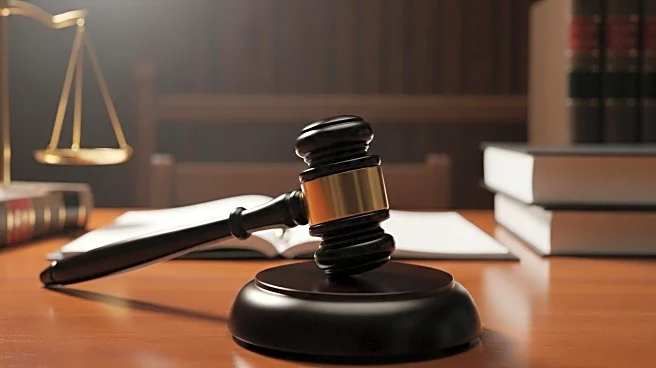What is the story about?
What's Happening?
Chief U.S. District Judge James E. Boasberg has admonished U.S. Attorney Jeanine Pirro's staff for their conduct in court, amid a dispute with Magistrate Judge Zia M. Faruqui. The conflict arose after Faruqui declined to accept an indictment, citing unlawful tactics by prosecutors. In response, Pirro's office filed a sharply-worded document accusing Faruqui of bias. Boasberg urged civility and directed prosecutors to await Faruqui's final ruling before appealing. The dispute is part of broader tensions over President Trump's law enforcement surge in Washington, D.C., which Faruqui has criticized for rights violations. Pirro defends her office's approach, despite grand juries rejecting multiple indictments.
Why It's Important?
The admonishment highlights tensions between the judiciary and the U.S. Attorney's office, reflecting broader concerns about prosecutorial conduct and judicial independence. The case underscores the challenges of balancing aggressive law enforcement with legal and ethical standards. The dispute may affect public perceptions of the justice system's fairness and integrity, particularly in politically charged environments. The outcome could influence future prosecutorial strategies and judicial oversight, impacting legal proceedings and public trust in the justice system.
What's Next?
The next steps involve awaiting Magistrate Judge Faruqui's final ruling on the indictment. Depending on the outcome, Pirro's office may seek to appeal, potentially escalating the legal conflict. The case could prompt broader discussions on prosecutorial conduct and judicial independence, influencing future legal practices and policies. Stakeholders, including legal professionals and civil rights advocates, will be closely monitoring developments, with potential implications for legal standards and public confidence in the justice system.
Beyond the Headlines
The case raises questions about the ethical responsibilities of prosecutors and the role of the judiciary in checking prosecutorial power. It highlights the potential for legal conflicts to reflect broader political and social tensions, particularly in the context of aggressive law enforcement policies. The situation may prompt discussions on the balance between law enforcement and civil liberties, influencing future legal and policy debates.














